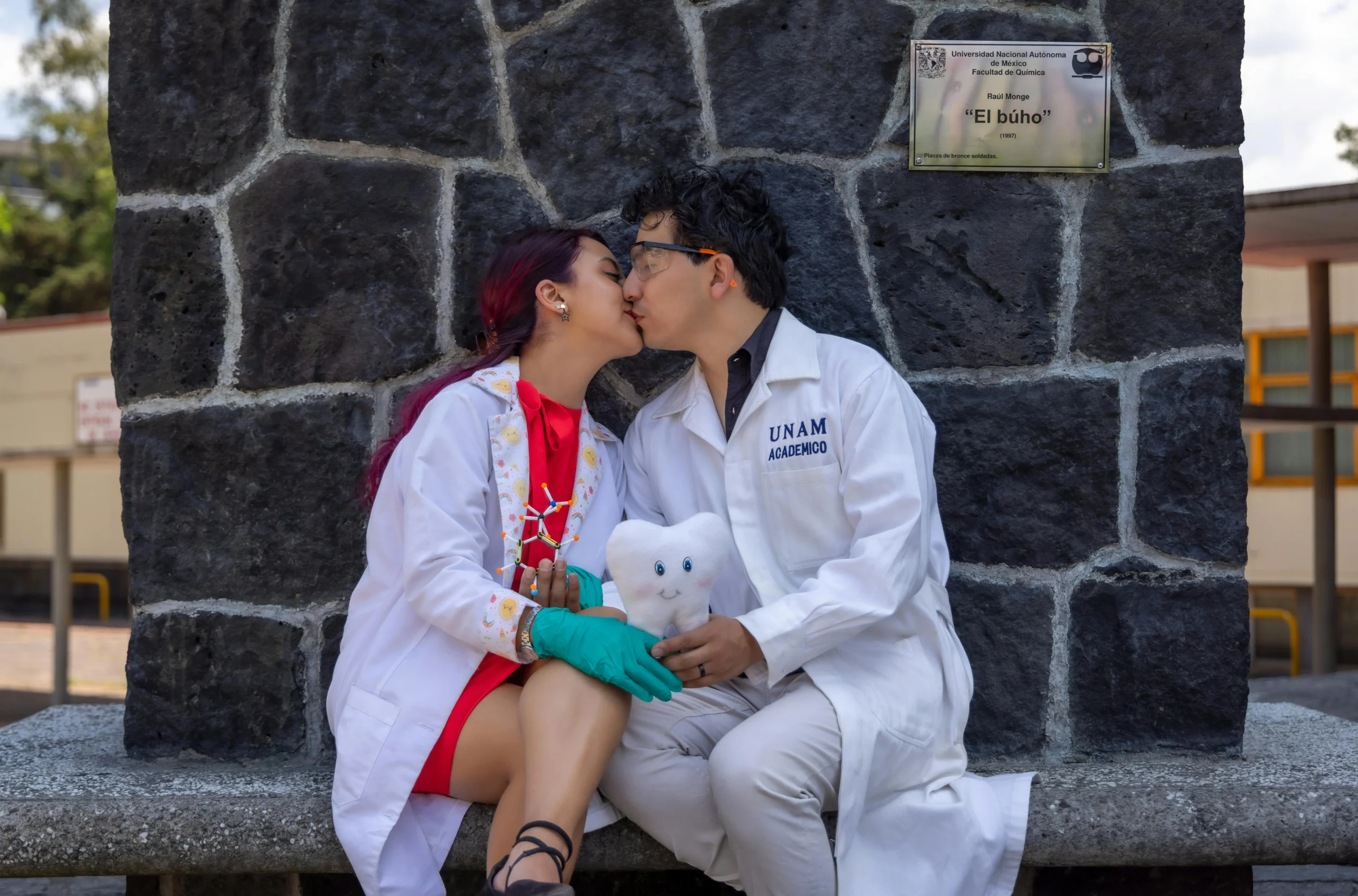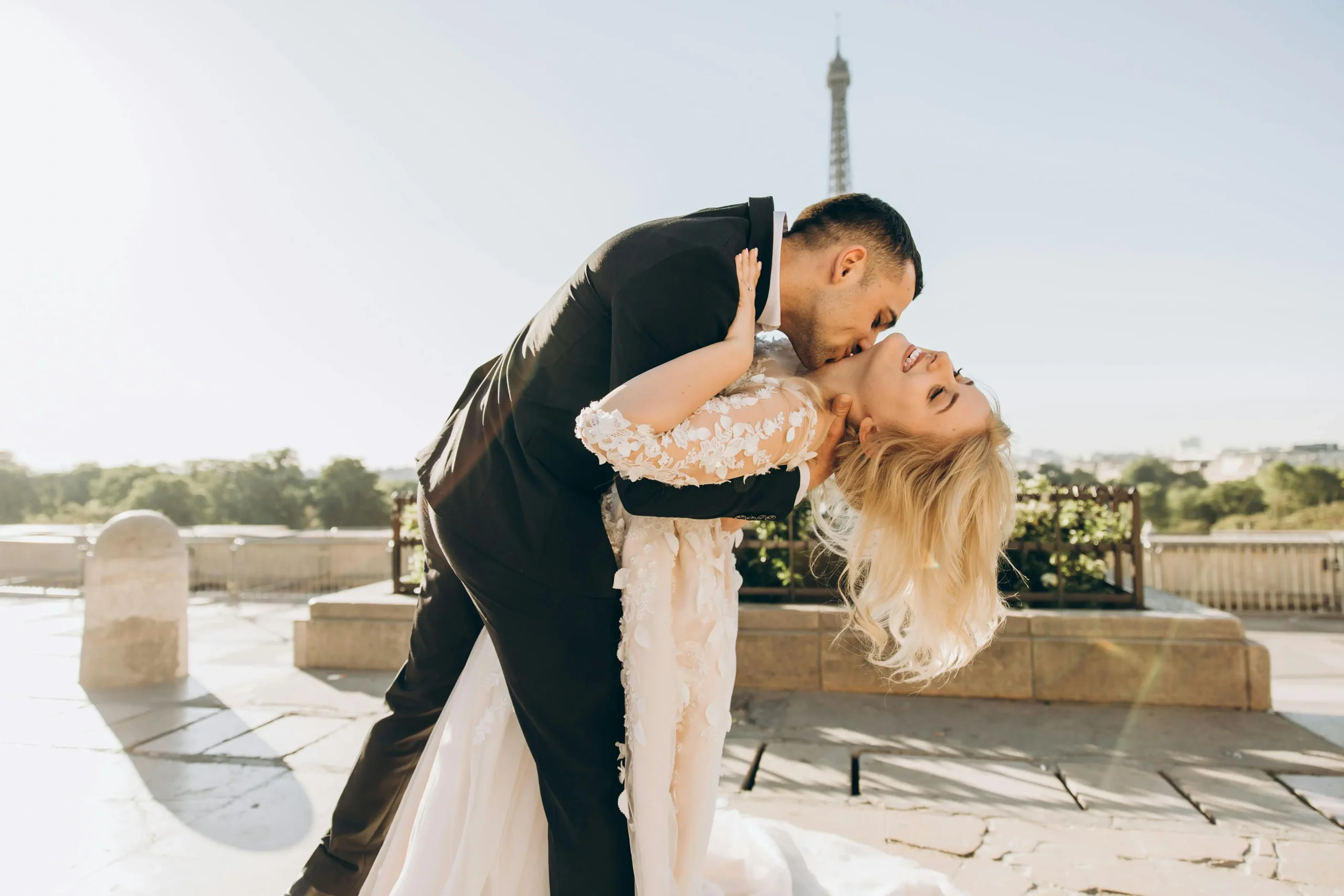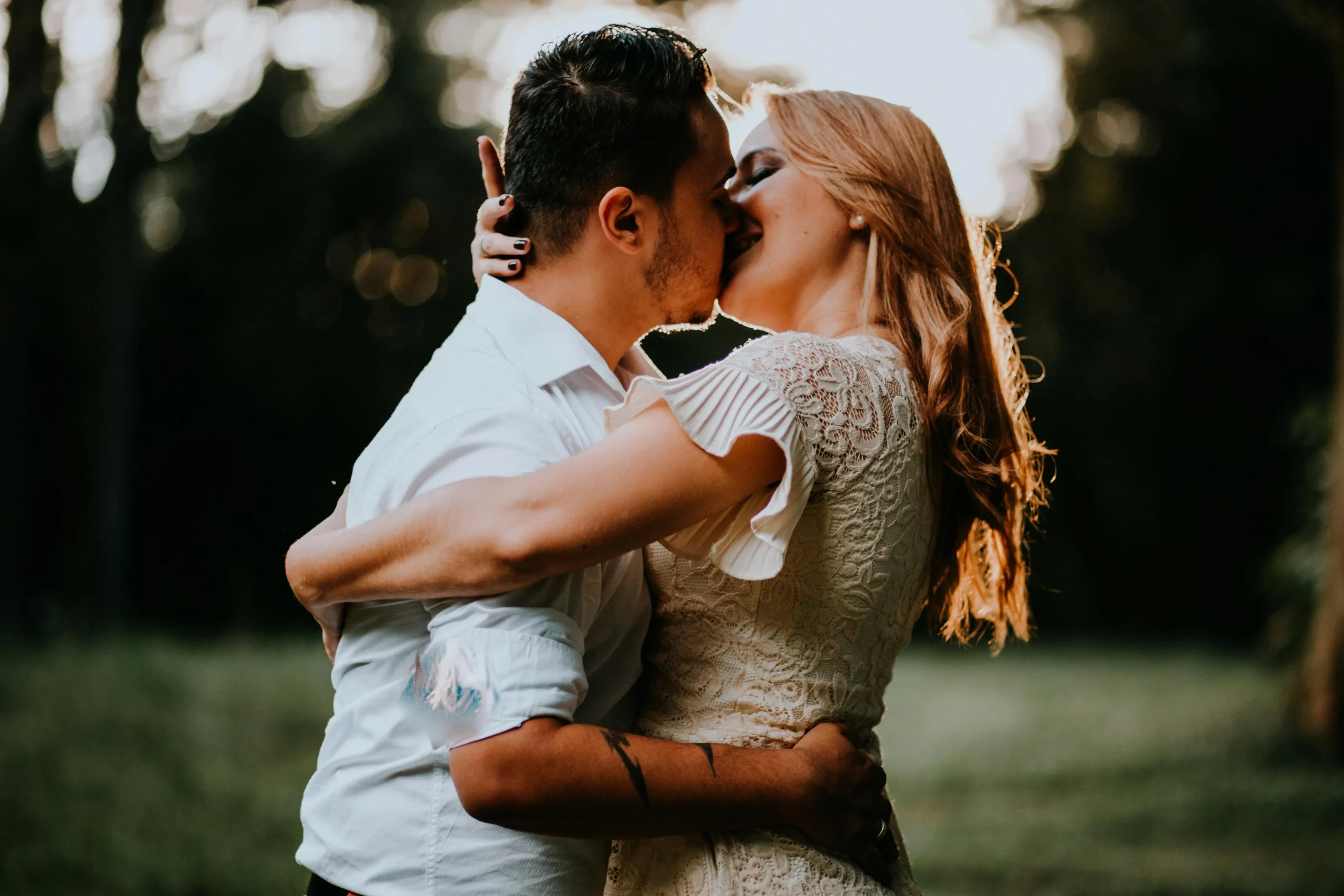Introduction: The Power of a Kiss
The first time I kissed someone I truly cared about, I remember feeling something shift—not just in the moment, but in the relationship itself. It wasn’t just about passion or attraction. It felt like an unspoken promise, a warm signal of safety, connection, and being seen. That’s when I first began wondering—why does kissing in relationships feel so powerful?
Turns out, that question has more layers than we might think.
Kissing in relationships is often brushed off as a romantic cliché, a sweet gesture that belongs in fairytales or teen dramas. But science, psychology, and even cultural anthropology say otherwise. From strengthening emotional bonds to communicating without words, from assessing romantic compatibility to reducing stress—kissing plays a deeper role in our lives than we tend to realize.
In this blog, I’ll take you through what I’ve uncovered—why kissing in relationships matters more than we think, and how this seemingly simple act can shape the health, intimacy, and longevity of our romantic bonds. We’ll look at how it evolved, what’s happening in your brain and body when you kiss, and why it continues to matter long after the honeymoon phase fades.
The Evolutionary and Cultural Roots of Kissing in Relationships
It’s fascinating to realize that kissing in relationships isn’t just a modern invention—it’s a behavior that dates back thousands of years. Some researchers believe it may have started with mothers feeding infants mouth-to-mouth, which slowly evolved into an intimate, affectionate act shared between adults.
In evolutionary terms, kissing may have served as a tool for mate assessment, a way for early humans to subconsciously detect genetic compatibility through taste and scent. But over time, its meaning expanded. In some cultures, kissing became a sacred ritual—used in weddings, greetings, or religious ceremonies. In others, kissing doesn’t play much of a role in romance at all.
Even today, not every culture practices romantic kissing. According to anthropological studies, only around 46% of cultures globally consider kissing in relationships a romantic gesture. Yet, in societies where it is common, it carries emotional weight—often seen as a sign of trust, affection, and emotional presence.
In essence, kissing is a learned behavior, but one that becomes deeply meaningful through cultural exposure and emotional association. For many of us, it’s how we first signal attraction—and later, how we maintain and nurture love.
The Science of Kissing in Relationships: Neurochemistry and Sensory Experience
A. Hormonal Reactions That Bond Us Through Kissing in Relationships
Let’s talk about what’s really going on when you lock lips with someone you love. Biologically speaking, kissing triggers a powerful cocktail of brain chemicals that forge connection. It’s not just romantic fluff—it’s neuroscience.
When we kiss, the body releases oxytocin, often referred to as the “love hormone.” It promotes bonding and trust. At the same time, dopamine levels spike—this is the same chemical linked with pleasure and reward. You also get a dose of serotonin, which boosts mood and helps regulate emotions.
This neurochemical trifecta is one reason why kissing in relationships can feel so addictive. And the effects go beyond just feeling good in the moment. Studies show that couples who kiss regularly report higher levels of relationship satisfaction and emotional security.
That’s not all. Researchers have found that frequent kissing is strongly linked to how connected couples feel emotionally—or to put it another way, “how kissing affects emotional connection.” The more often couples kiss, the more emotionally tuned in they tend to be to each other’s needs.
So no, it’s not just in your head. That little kiss goodbye in the morning? It’s setting your relationship up for emotional resilience throughout the day.
B. Sensory and Emotional Encoding Through Kissing in Relationships
What makes a kiss unforgettable? Part of the magic lies in how multisensory the act is.
The lips are among the most nerve-rich parts of the human body, which makes kissing an incredibly sensitive and emotionally charged experience. Every kiss sends tactile, olfactory, and gustatory (taste) signals to the brain, forming emotional imprints that linger far longer than the kiss itself.
When we kiss, we’re not just touching lips. We’re smelling pheromones, tasting skin chemistry, and gauging micro-responses that can tell us a lot about our partner—even subconsciously. This helps explain the phenomenon of “types of kisses and their meanings in relationships.” A slow, lingering kiss may express longing or reassurance. A quick peck can convey routine affection or comfort. A deep kiss can signal desire or emotional urgency.
These different types of kisses serve as emotional shorthand—tiny, wordless messages that build emotional memory and reinforce the connection between partners.
Kissing in relationships is, quite literally, a sensory language that helps us remember who we love, why we love them, and what it feels like to be close to them.

Kissing in Relationships as a Biological Filter: Mate Assessment
Have you ever had a first kiss that completely changed the way you felt about someone—for better or worse? You’re not alone. Kissing in relationships often acts as an instinctive compatibility test, especially in the early stages of dating. There’s actually science to back this up.
Researchers have found that the first kiss can be a powerful predictor of romantic potential. It’s not just about how “good” someone is at kissing—it’s about the subtle cues that get exchanged during the act. When we kiss, our brains are subconsciously evaluating everything from scent and taste to responsiveness and body language. This helps us assess biological compatibility and even immune system diversity—factors that affect long-term relationship viability on a primal level.
Interestingly, gender plays a role in how much weight is placed on kissing. Studies show that women, more than men, tend to use kissing as a tool to evaluate a potential partner’s suitability. This could be an evolutionary trait; for women, kissing may act as a filtering mechanism for choosing a mate who’s emotionally and genetically compatible.
That brings us to one of the most important questions in relationship psychology: “what does kissing mean in a relationship?” For many, it’s a gateway—an early indicator of whether or not deeper emotional and physical chemistry exists. For others, it’s a ritual of reassurance, especially once the relationship progresses.
No matter the stage, kissing in relationships is rarely meaningless. It’s often the body’s first and most natural way of saying, “Yes, this feels right.”
Kissing in Relationships as Emotional Glue in Long-Term Love
As relationships evolve, so does the role of kissing. It’s easy to assume that kissing naturally fades as years go by—but that’s often where couples miss out on one of their most powerful tools for emotional bonding. Kissing in relationships isn’t just for the honeymoon phase—it’s what keeps the connection alive through all the seasons of love.
Research shows that couples who kiss daily report significantly higher relationship satisfaction. It’s not about grand gestures or passionate make-outs (although those help too). Even small, affectionate kisses—before leaving for work, while cooking dinner, or before falling asleep—serve as micro-moments of emotional security.
Unlike sexual intimacy, which can be influenced by mood, timing, or energy levels, kissing is a low-pressure, high-impact ritual. It helps reaffirm connection, safety, and emotional availability. It’s one of the simplest yet most powerful ways to say: “I still choose you.”
This is where the “importance of kissing in a relationship” really shows itself. It’s not just a spark at the beginning—it’s the glue that holds the emotional fabric of the relationship together. Whether you’re in a new relationship or have been together for decades, prioritizing kissing is a direct investment in intimacy.
What I’ve found in my own experience is that even during arguments or periods of emotional distance, a genuine kiss has the power to soften hearts. It becomes more than an act—it’s a message. And over time, these messages become the emotional scaffolding of long-term love.
Kissing in Relationships as Intimate Communication
Words matter, yes—but in love, touch often says more than any sentence ever could. And there’s no form of touch more emotionally nuanced than a kiss. Kissing in relationships is not just a sign of attraction; it’s one of the most profound ways we express ourselves without speaking.
Think about it. A kiss can be soft and reassuring, full of apology or forgiveness. It can be passionate and consuming, conveying desire or urgency. It can be routine but meaningful—like a quiet nod of love between long-term partners who know each other’s rhythms.
The style of a kiss—the pressure, duration, even the timing—communicates volumes. This is part of what makes kissing such a powerful tool for emotional attunement. It allows us to feel seen and heard, even when words fail us. And when both partners are emotionally present during a kiss, it fosters a deeper, almost sacred connection.
Kissing in relationships acts like a nonverbal love language. It says “I’m here,” “I miss you,” or “We’re okay” when it’s too hard to say it out loud. It brings softness during tension, closeness during silence, and joy in everyday moments.
So the next time you kiss your partner—whether it’s after a hard day or in a spontaneous burst of love—remember: it’s not just a kiss. It’s communication at its most human.
Psychological and Health Benefits of Kissing in Relationships
A. Mental Health and Emotional Well-being
I’ll be honest—some of the most emotionally grounding moments I’ve experienced in my relationship came from something as simple as a kiss. When life gets chaotic, kissing in relationships often works like a reset button for me and my partner. It’s not just romantic—it’s therapeutic.
Science backs this up. Kissing reduces cortisol levels—the hormone responsible for stress—and increases the release of oxytocin, dopamine, and serotonin. This hormonal cocktail improves our mood, making us feel happier and more connected. Stress reduction, anxiety relief, and mood boosting are real psychological benefits of consistent physical affection.
One study published in the Western Journal of Communication found that couples who kissed more frequently reported higher levels of emotional satisfaction. When I feel overwhelmed, even a short kiss helps regulate my emotions and reminds me I’m not alone.
So if you’re wondering why kissing is important for couples, this is one answer: it strengthens the emotional core of the relationship while easing the mental burdens life throws at us.
A 2007 study by psychologists Wendy Hill and Carey Wilson showed that kissing significantly lowers cortisol levels (stress hormone) and increases oxytocin in men, indicating true physiological bonding effects while kissing, whereas women may require more context to trigger the same level of oxytocin.
B. Physical Health Boosts
Beyond emotional wellness, kissing in relationships provides surprising physical health benefits too. Research shows that frequent kissing can lower blood pressure and reduce the levels of “bad” cholesterol. It even contributes to stronger immunity due to the exchange of microbiota—think of it as an affectionate, health-boosting handshake.
And believe it or not, a passionate kiss can burn between 2–6 calories per minute. While it won’t replace your workout, it adds a playful way to stay a bit more active!
These physical responses are part of a broader ecosystem where emotional intimacy meets body chemistry, creating long-term health perks from simple, daily affection.
According to Psychology Today, a good kiss boosts emotional connection, desire, and partner satisfaction, supports immune function, mood, and stress relief—emphasizing the value of kissing in long-term relationships.

The Link Between Kissing in Relationships and Sexual Intimacy
There’s no denying it—kissing in relationships plays a key role in building sexual intimacy. It’s often the first step in foreplay, creating anticipation, excitement, and emotional safety.
Kissing doesn’t always need to lead to sex, though. In fact, kissing outside of sex is a sign of a deeper emotional bond. It signals that affection isn’t just tied to physical desire—it’s rooted in love, trust, and emotional closeness.
When we kiss with intention—lingering longer, holding the moment—we create a space where our partner feels seen, desired, and safe. Emotional safety leads to greater vulnerability, which in turn fuels better physical connection. That’s why experts often say that a passionate kiss can tell you more about a relationship than words ever could.
So, whether it’s foreplay or simply a daily ritual, kissing in relationships reinforces both the emotional and physical pillars of love.
Kissing as a Tool for Conflict Resolution in Relationships
This might sound surprising, but kissing in relationships can be a powerful form of conflict resolution. After an argument, when words feel heavy or awkward, a kiss can act as an “emotional reset.”
It’s not about sweeping problems under the rug. Rather, it’s about bridging emotional distance and saying, “I still care, even if we disagree.” This small gesture reopens the door for conversation, empathy, and eventually forgiveness.
I’ve experienced this firsthand. A kiss in the middle of tension doesn’t solve everything—but it reminds both of us that the relationship is bigger than the argument. That reminder alone can soften resentment and encourage healing.
When used with sincerity, kissing becomes a ritual of reconciliation. Physical affection as a step toward forgiveness is a valuable emotional tool couples often overlook. Read my blog on Mastering conflict resolution in relationships.
Kissing in Relationships Through the Stages of Love
Kissing evolves as we do. At the start, it’s electric—charged with excitement, nervous energy, and infatuation. That first kiss is often a powerful predictor of romantic potential, a moment we tend to remember vividly.
As the relationship deepens, kissing in relationships shifts from a rush of novelty to a ritual of comfort. It becomes a habit that strengthens emotional stability and provides reassurance. Over time, it may feel less urgent, but it becomes more meaningful. It’s no longer about proving desire—it’s about maintaining connection.
In long-term relationships, especially marriages, daily kissing is linked to long-term satisfaction. Even a short, intentional kiss when leaving for work can act as a tiny thread keeping emotional intimacy strong.
As we grow older, our style of kissing may mellow, but the intention behind it deepens. It becomes a language of familiarity, care, and unconditional love—speaking volumes without saying a word.
Individual Preferences and Compatibility in Kissing in Relationships
Not everyone kisses the same way—and that’s not only okay, it’s expected. When I first started dating seriously, I quickly realized how kissing in relationships can vary dramatically from person to person. Some love slow, lingering kisses. Others enjoy playful pecks. Some want it every day; others reserve it for more intimate moments. And that’s where compatibility—and communication—becomes key.
It’s important to understand that preferences around kissing in relationships can reflect broader emotional or psychological needs. One partner might crave frequent physical affection as reassurance, while the other might feel overwhelmed if it feels too intense or too often.
That’s why open dialogue matters. I’ve found that respecting boundaries and exploring each other’s needs can not only prevent misunderstandings but deepen the emotional trust between partners. Like anything in a relationship, being curious and compassionate goes a long way.
This is especially true when preferences evolve. Maybe someone who didn’t care much about kissing before now sees it as a form of emotional bonding. Or vice versa. It’s less about how often you kiss and more about why kissing is important for couples—whether it’s for comfort, connection, or closeness.
Conclusion: A Kiss That Speaks Volumes
When we think about physical affection in romantic relationships, kissing often feels like a small gesture. But if we look closer, it’s anything but small. Kissing in relationships carries evolutionary wisdom, builds trust, releases feel-good chemicals, reduces stress, and maintains emotional intimacy.
Whether it’s that heart-racing first kiss or the comforting goodnight kiss you share after years together, kissing acts as a thread that weaves connection into the relationship’s fabric. It helps partners navigate both highs and lows, arguments and celebrations, passion and peace.
If there’s one thing I’ve learned, it’s this: kissing in relationships matters more than we think—emotionally, physically, and psychologically. So next time you lean in for a kiss, do it with presence. Let it be more than routine. Let it be your silent way of saying, “I’m here, and I care.”
Try this today: surprise your partner with a kiss—unexpected, genuine, and full of intention. And if you’re still navigating how much kissing means to each of you, talk about it. Sometimes, the most powerful love language doesn’t need any words at all.

Frequently Asked Questions: Kissing in Relationships
Q1. Why is kissing important in a relationship?
A. Kissing strengthens emotional bonds, builds trust, and boosts intimacy. It releases oxytocin and dopamine—chemicals linked to love and connection.
Q2. How does kissing affect emotional health?
A. Kissing reduces stress and anxiety while improving mood. It fosters emotional safety and helps couples feel more connected and supported.
Q3. Can kissing improve physical health too?
A. Yes! Studies show that kissing can lower cortisol (stress hormone), reduce blood pressure, improve immunity, and even burn a few calories.
Q4. Does the meaning of kissing change over time in a relationship?
A. Absolutely. Kissing starts with passion in early stages and evolves into a way of expressing comfort, commitment, and routine emotional connection.
Q5. What if partners have different kissing preferences?
A. Open communication is key. Discuss your needs and boundaries respectfully. Understanding each other’s affection style builds compatibility and trust.

